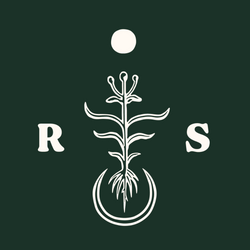REISHI (Ganoderma Lucidum)
In traditional Chinese medicine, Reishi has several interesting names. It’s referred to as the mushroom of immortality, the king of mushrooms, the soul mushroom, divine mushroom and many other titles. That should give you some idea of the importance of this beautiful fungi. It has been used medicinally for over 2,000 years. Doctors across Asia still prescribe Reishi mushrooms to treat a variety of health conditions.
In nature, Reishi mushrooms are quite rare. It’s said that only two or three out of 10,000 hardwood trees will have Reishi mushrooms growing on them. There are about 80 different species in the world. Different regions and climates will have different types of Reishi mushrooms that all look a bit different. Reishi mushrooms are saprotrophic, which means that they get their nutrients from dead or organic matter. You will mostly find them on dead or dying trees, particularly old logs or stumps. The mushrooms will continue growing every year until the wood has completely rotted away. You can come back to harvest them again and again. Reishi can also be cultivated on blocks of sawdust and other substrates.
Reishi mushrooms are one of the easiest mushrooms to identify because they often have quite a unique appearance. If you see a shelf mushroom with a deep red body lightening out to orange, yellow and white toward the edges of the cap, you can be confident that you’re looking at a Reishi mushroom. They are a type of shelf mushroom that you can find growing horizontally out of the trunks of trees. They don’t have any noticeable stem, unlike mushrooms that grow out of the ground. There aren’t any poisonous mushrooms that look similar to Reishi, so they’re great for beginners to collect. The worst-case scenario is that you’ll end up with a similar-looking mushroom that offers a lot of extra fibre to your diet but no real medicinal benefits. If you find a shelf mushroom growing on a healthy young tree, it’s not likely to be Reishi. Reishi mushrooms prefer to grow on hardwood trees like oak, elm, beech and maple. However some species we discussed above prefer conifers, particularly hemlock.
Studies so far have identified some interesting compounds in Reishi mushrooms such as, beta-glucans – These compounds may be able to help stop the spread and growth of cancer cells. In animal testing, animals fed beta-glucans had more active and stronger immune systems, Triterpenes – These substances have anti-allergy and blood pressure lowering effects and Sterols – Act as precursors to human hormones in the body.
Reishi mushrooms have been shown to slow blood clotting. One study also suggests that Reishi extracts can help with urinary tract problems. Reishi may also be helpful in lowering cholesterol.
Untested claims of the Reishi mushroom include potential uses in treating HIV and AIDS, fatigue and other medical conditions.
If you are currently undergoing chemotherapy or radiotherapy, then it may be worth discussing with your physician adding Reishi to your treatment protocol. Mushrooms are considered an adaptogen, which is a plant or fungi that can help the body resist or cope with physical and mental stress.
Reishi has also been used to treat diabetes and insulin resistance, as well as having anti-inflammatory, antiviral, antibacterial, antioxidant and analgesic (pain-relieving) properties.
In rare cases, Reishi may cause liver toxicity. So it should be avoided by people with conditions affecting the liver like cirrhosis or hepatitis. In healthy subjects, a study of taking Reishi mushroom extract for four weeks didn’t show any negative effects on the liver or kidneys.
Since Reishi can lower blood pressure, it’s best to avoid it if you already suffer from low blood pressure. Consuming Reishi also increases the risk of bleeding, so it’s best to avoid it if you suffer from haemophilia or other bleeding disorders. For the same reason, it should be avoided before undergoing surgery. If you’re currently taking Reishi, you should stop using it at least two weeks before your scheduled surgery date.
For the average person without any pre-existing medical conditions who isn’t currently taking any medications, the side effects of taking Reishi mushrooms are minor. The most common side effect reported is an increased risk of an upset stomach.

